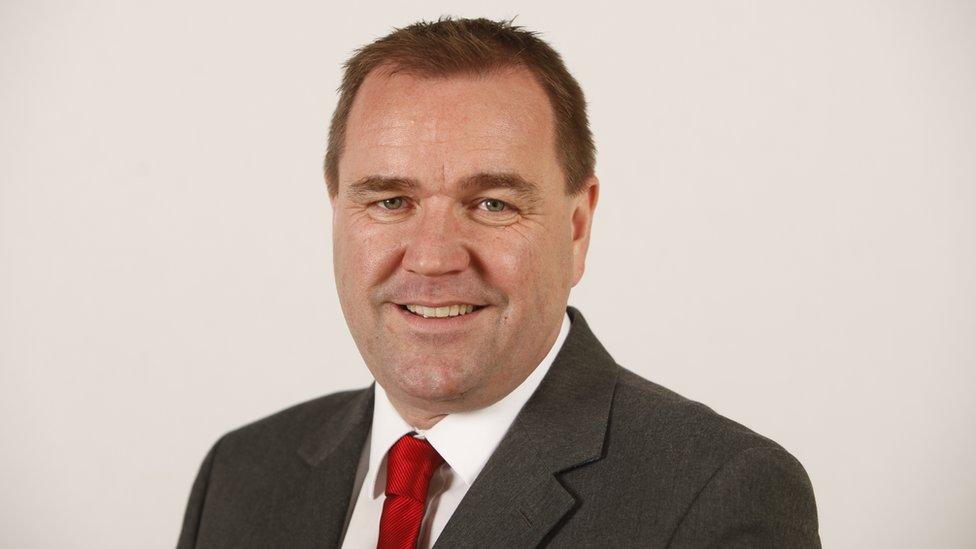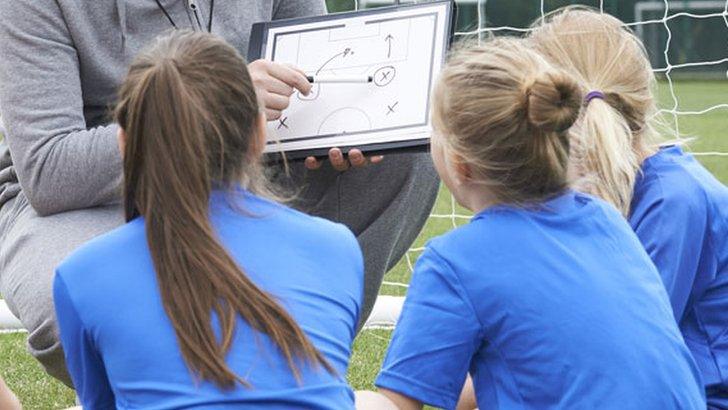SFA 'asleep' over child protection
- Published

Hundreds of youth football coaches were suspended for not undergoing background checks
Children may be at risk because the system designed to prevent abuse in sport is not working properly, according to a report by MSPs.
Holyrood's health and sport committee also accused the SFA of being "asleep on the job" over the issue.
The committee launched its inquiry after allegations emerged of young footballers being abused by coaches.
BBC Scotland later found that 2,500 youth football coaches did not have full background checks.
The committee said there was a "compelling case" for the current voluntary Protecting Vulnerable Groups scheme (PVG) to be made mandatory for all sports organisations in Scotland.
The Scottish government plans to have new legislation in place by 2019.
But the committee said it believed action needed to be taken now to strengthen the PVG scheme and to ensure "unsuitable people" were prevented from doing regulated work.
It also called for a strengthening of the "minimum operating requirements" that sport governing bodies are required to meet in relation to child protection.
And it recommended that future grants from SportScotland to governing bodies be "conditional on adequate procedures not only being in place but being timeously adhered to".
The report highlighted concerns raised about a backlog of checks waiting to be carried out on coaches and officials working with young footballers.
'Unsuitable people'
Committee members also said the Scottish Youth Football Association (SFYA) "misled government officials and the committee in relation to the levels of backlog being experienced since at least August 2016".
Committee convener Neil Findlay said the evidence had highlighted variations in how the PVG scheme operates in sports across Scotland.
The Labour MSP added: "Ultimately, we believe the current system of PVG checks may not be preventing unsuitable people from doing regulated work with children.
"We're talking about the safety of children - urgent action is needed now to strengthen the scheme as 2019 is too long to wait for new legislation."

Neil Findlay was highly critical of the Scottish Football Association and Scottish Youth Football Association
Mr Findlay said the committee had raised "serious concerns" about the ability of the SYFA to ensure PVG checks were carried out efficiently.
He said: "We cannot, even now, be confident that the SYFA is being truthful in relation to the size of their backlog and consequently that as an organisation they are committed to undertaking the appropriate PVG checking expeditiously.
"We consider the SFA to have been asleep on the job and continuingly complacent in this area. Based on the information provided, we are left with concerns about the current protections being afforded to youth footballers in Scotland."
The PVG scheme, which has been in operation since 2011, is a registration system for people who work, whether paid or unpaid, with children and protected adults.
The checks are carried by Disclosure Scotland and searches are made of databases, including criminal records.
'Tightened procedures'
A spokesman for the SYFA said it placed the safety of Scotland's youth footballers at the heart of everything it did.
He added: "We are one of the country's largest users of PVG checks and register thousands of new officials every year.
"We have tightened our procedures in recent months and are amongst the very best-performing youth sports bodies in the country when it comes to ensuring Disclosure Scotland checks are carried out in a timely fashion.
"We are very disappointed with comments that we in any way misled anyone about our procedures and have been open and honest in all our dealings with the parliament."
Meanwhile, a spokesman for the SFA said it was in "full agreement" that the PVG scheme should be overhauled as soon as possible.
But he said the organisation "strongly refutes and does not recognise" Mr Findlay's claim that it was complacent over the issue.
The spokesman added: "The responsibility for PVG checks in youth football rests with the Scottish Youth FA. It is important to stress that all coaches and staff engaged directly by the Scottish FA are fully compliant with the PVG legislation.
"We are fully aware of our own responsibilities as the governing body and reiterate our commitment to reassuring young players and parents that Scottish football is a safe environment in which to play."
Sport Minister Aileen Campbell said: "The deputy first minister announced a review of the PVG scheme last year which will review all aspects of the scheme.
"The review will lead to a formal consultation and we will take forward any legislation necessary to ensure the PVG scheme retains its essential purpose of safeguarding."
Historical child abuse
BBC Scotland revealed in December that 2,500 of the 15,385 coaches registered with the SYFA did not have PVG clearance.
The SYFA said it would tighten up its procedures - with hundreds of youth football coaches and officials and 18 youth football clubs from across Scotland subsequently being suspended for failing to complete the background checks.
It later emerged that 14 of the 45 sport governing bodies that responded to a BBC Scotland query may also have unchecked coaches.
Sports organisations gave a number of reasons for coaches not being checked at the time of the survey.
Some coaches are self-employed, others are involved with school clubs where the local authority was responsible for checks, some were in the process of becoming qualified, while some were doing unregulated work that did not require a check.
More than 20 UK police forces - including Police Scotland - have confirmed they are investigating claims of historical child abuse in football.
A BBC Scotland investigation revealed that former youth coach and referee Hugh Stevenson was allowed to carry on working in football for several years after being reported to police and the SFA over child sex offences.
And Jim McCafferty, a former youth coach who was the kit man for Celtic, Hibernian and Falkirk, was arrested in Belfast after allegations were made against him.
Separately, allegations have also been made against coaches who were formerly involved with clubs including Motherwell, Partick Thistle and Rangers.
The allegations involve incidents said to have happened between the 1970s and early 1990s.
- Attribution
- Published6 February 2017

- Published14 December 2016

- Published13 December 2016
